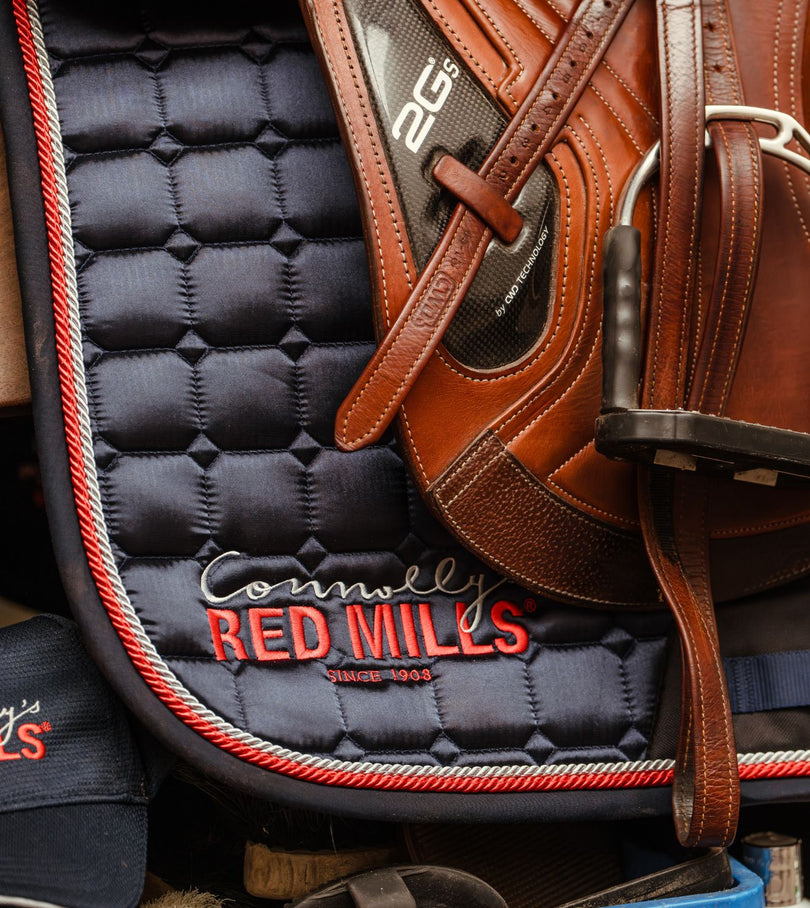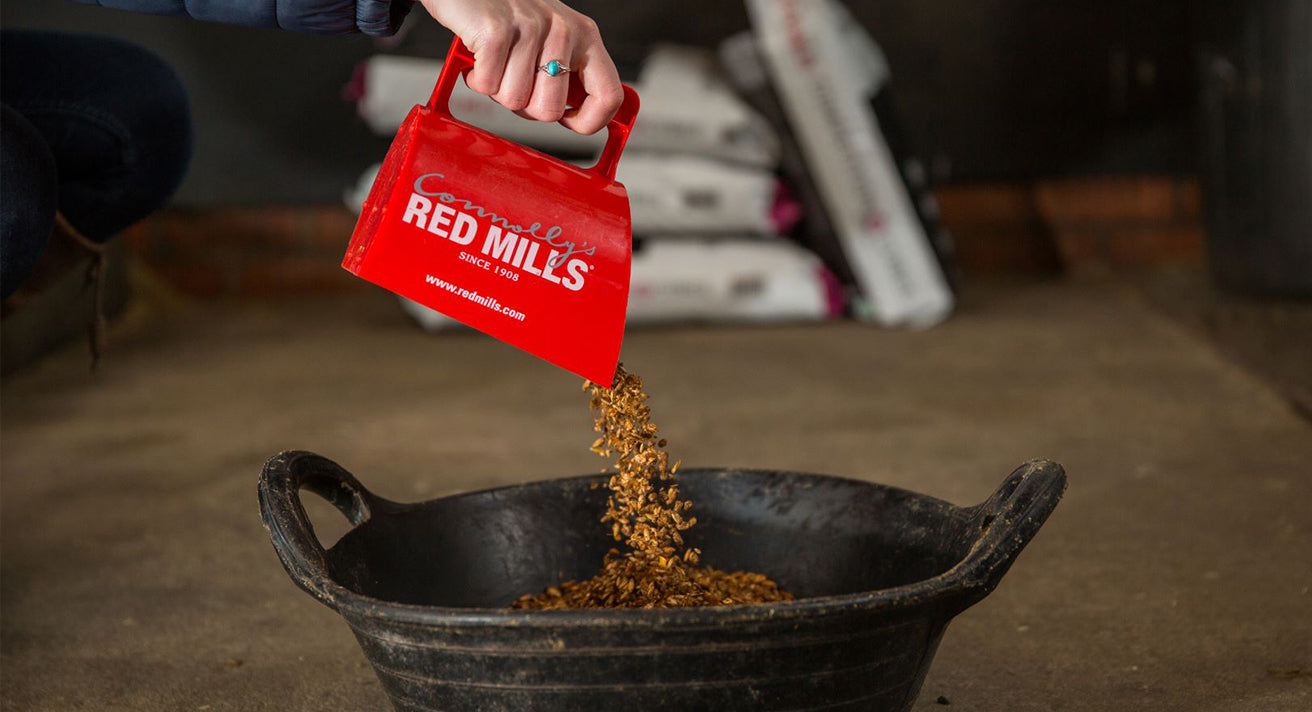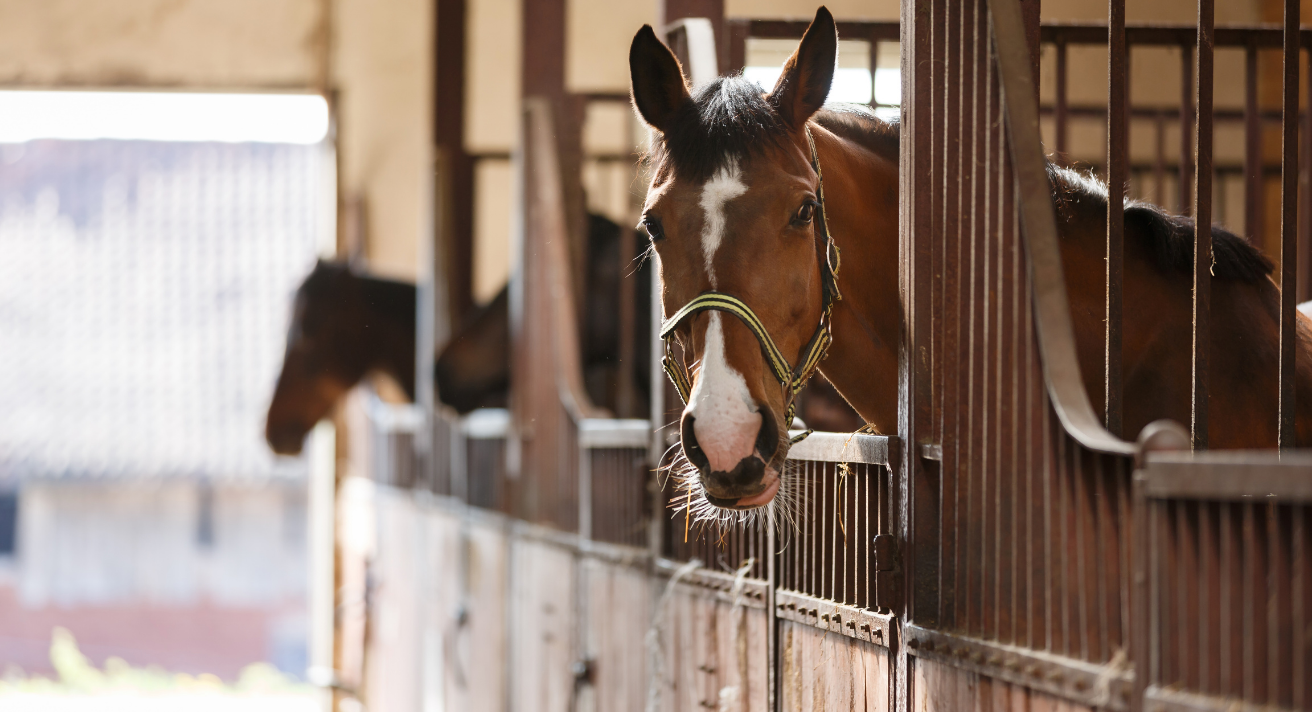Horses naturally lose weight in the colder winter months as they need to burn additional calories to maintain general body warmth. Whilst topical in the winter months, unwanted weight loss can occur in horses at any of time of year.
The first step to addressing unwanted weight loss is to determine the cause. Regularly monitoring your horse’s weight, body condition score and muscle build up will help you recognise any problems quickly, allowing you to act immediately.
Assessing your horse’s weight
Body condition scoring (BCS) provides a simple, repeatable, and consistent way to monitor the amount of fat a horse is carrying. When you are assessing your horse’s weight and BCS it’s important to get hands on! Just looking can be misleading, especially in the winter when thick, woolly coats or rugs can hide weight loss. You can find out more about how to BCS here.
BCS will also help you to differentiate between muscle development and fat accumulation. This is important as loss of body fat should not be confused with loss of muscle mass. Knowing if the horse is losing body fat and or muscle mass can help to determine the cause and most suitable method to address the issue.

Causes for horse weight loss
As the video above demonstrates, there are may be several reasons for weight loss. Put simply, weight loss will occur when there is a negative energy balance; if your horse is using more energy than he is taking in, the horse will start to lose weight. To identify the cause of weight loss there are many aspects to consider:
Lifestage: older horses often have trouble holding condition. They may have difficulty chewing forage due to dental issues, and old age may compromise the efficiency of digestion.
Environmental effect: horses use calories to keep themselves warm and cool themselves down, so very harsh winters or very hot summers can exacerbate weight loss. Climate will also influence pasture quality and intake
Underlying health issues: some horses may be underweight due to health problems which may require veterinary attention. Parasites, dental issues, infectious disease, ulcers, and chronic pain must be ruled out as the cause of unwanted weight loss before making any changes to the diet. Some underlying medical conditions such as ulcers will require the support of a special dietary regime to help the horse gain weight and condition.
Feeding for weight gain
The most common reason for weight loss is simply that the calories being fed are not meeting your horse’s daily requirements. Several options can be considered to address a lack of calories in the diet.
Forage
Forage should account for the largest proportion of your horses’ diet and can safely be fed ad lib. Consider increasing the amount of hay/ haylage you offer or allowing 24-hour access to grazing. Forage is a source of calories and is necessary to ensure normal functioning of the digestive tract. If providing increased amounts of forage is not enough to promote weight gain, calories coming from concentrate feeds must be considered.
Hard feed
The calorie density of the diet can be increased by feeding small, highly digestible feeds divided evenly throughout the day. Sometimes all it takes to counteract weight loss is to feed more. Increasing the amount of concentrates fed will increase total calorie intake.
Remember to feed little and often. In practice this means that the total amount of concentrates fed per day should be split up into several smaller meals. Keeping concentrates meals small will allow the horse to better digest and absorb nutrients and calories from each concentrate meal while helping to maintain digestive health.
If you are happy with the feed you are using but would just like to add more calories to the diet on a short-term basis, consider the addition of oil such as Foran Equines Kentucky Karron Oil. Choosing an oil rich in omega-3 fatty acids can also help to achieve good coat condition and benefit digestive health.
Alternatively, choose a feed specifically formulated to promote condition such as Connolly’s RED MILLS 14% Conditioning Mix. A high-calorie, barley-based muesli suitable for performance horses, which has been steam cooked to increase digestibility.
High cereal feeds may exacerbate ‘fizzy’ behaviour in horses that naturally have an excitable temperament, although the reasons for this are not fully understood. Nervous, excitable, or stressy horses can often ‘waste energy’ and as a result may lose weight.
To help these horses maintain optimal weight and promote an even temperament a feed that provides energy from fibre ingredient (e.g. sugar beet, soya bean hulls, alfalfa meal) and oil will be more suitable than a cereal-based ration. In these situations, Connolly’s RED MILLS Horse Care 10 Cubes, which are specifically formulated to contain lower levels of starch, are ideal.
How quickly will my horse put weight on?
Weight gain will not happen overnight; it takes time and will depend on how much weight the horse needs to gain. The National Requirements for Horses suggested that it takes 16-20 kg of weight gain to change a horse’s body condition score by 1 unit (based on a 500 kg horse; 1-9 scale).
Consequently, it will usually take at least 3-4 weeks before horse owners can see noticeable weight gain. It should be noted that severely emaciated horses will require specific dietary and veterinary support as they can suffer from an often fatal condition known as re-feeding syndrome.
If you have any questions on feeding your horse, get in touch with our team of expert nutritionists.













